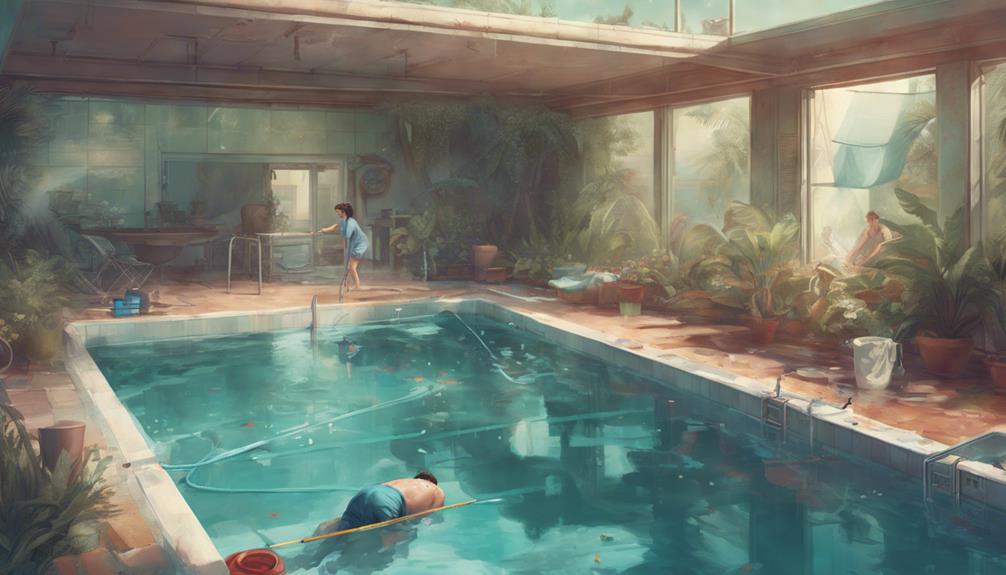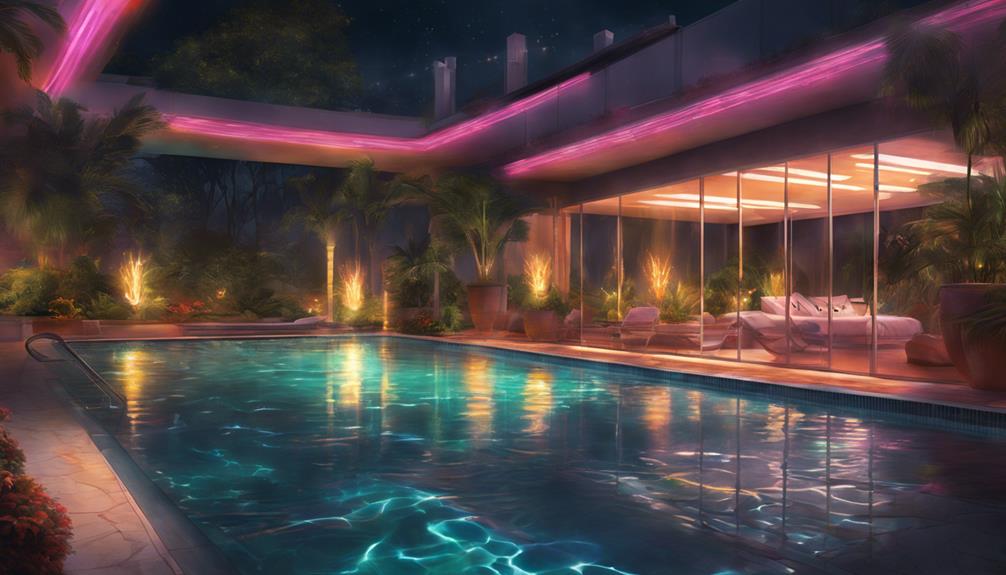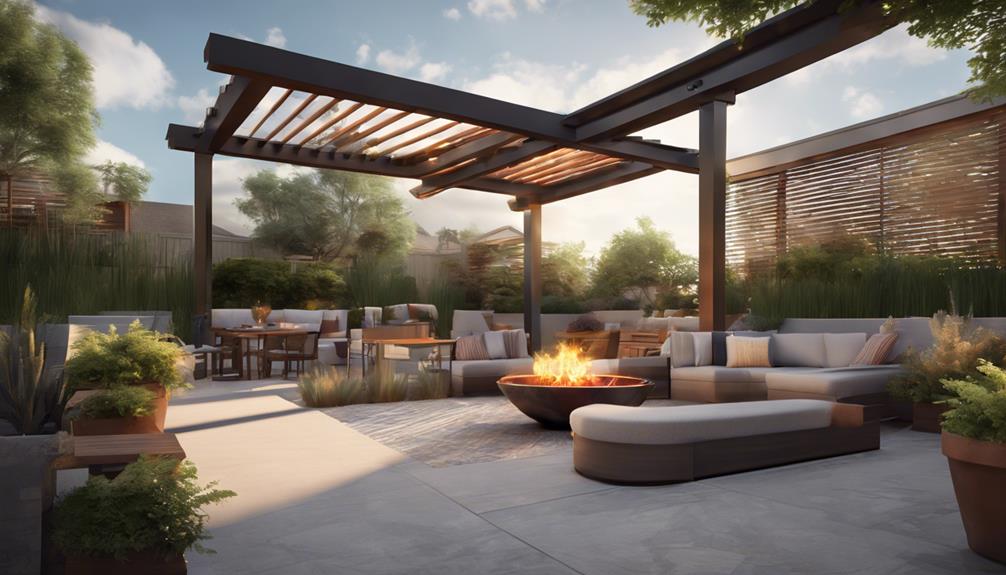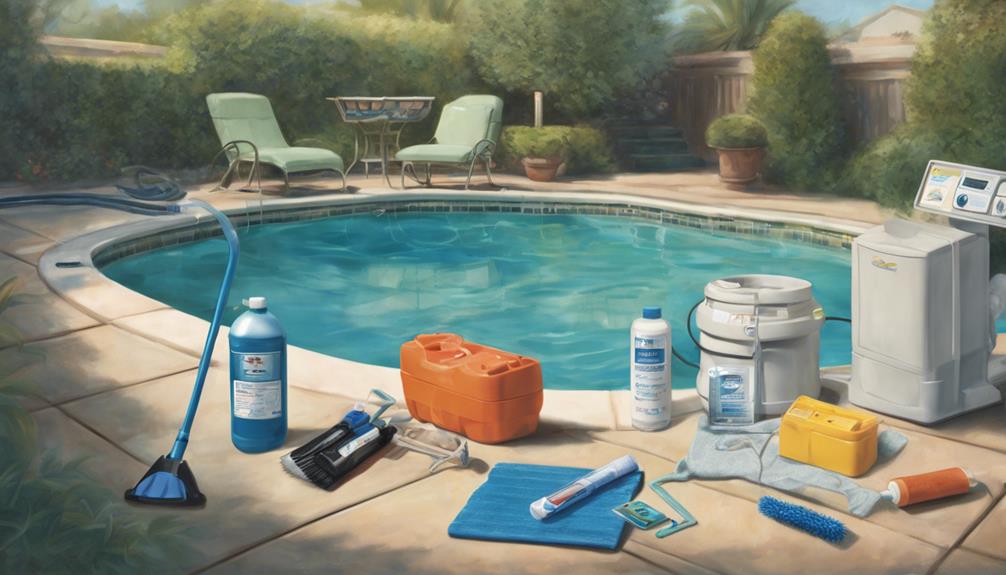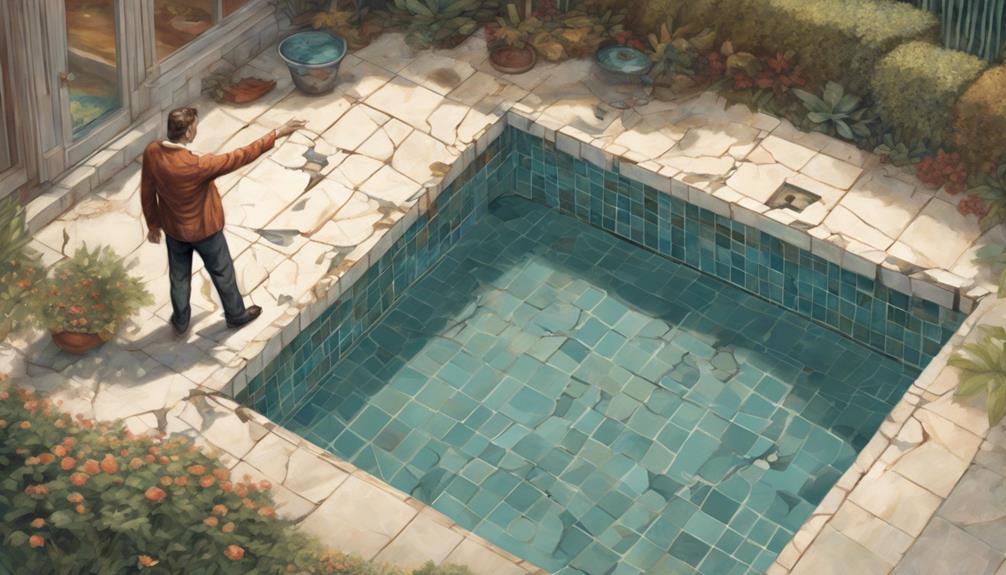To achieve crystal clear water in your pool when opening for the season, begin by keeping the pool cover clean to protect against debris and bacteria. Use a quality pool vacuum to regularly clean up visible debris and improve water circulation. Be sure to check the filter regularly to eliminate contaminants and maintain optimal water quality. Keep chlorine levels balanced to prevent algae growth, and shock the pool to effectively eliminate contaminants. Following these essential tasks is crucial for achieving pristine water right from the start. Enjoy a clean and inviting pool by following these important steps.
Key Takeaways
- Clean pool cover to shield against debris and bacteria.
- Vacuum pool regularly to remove visible debris and bacteria.
- Check pool filter for optimal water quality and circulation.
- Maintain correct chlorine levels to prevent algae growth.
- Shock pool to destroy contaminants for crystal-clear water.
Clean Pool Cover for Protection
How can you guarantee the protection and cleanliness of your pool during the off-season? One essential step is to make sure your pool cover remains clean. Throughout the off-season, your pool cover acts as a shield, protecting your pool from debris, mold, and leaves that could contaminate the water.
Regularly rinsing the cover to remove any buildup is vital in preventing harmful bacteria from infiltrating your pool. By keeping your pool cover clean, you not only maintain the water's cleanliness but also help extend the lifespan of your cover.
If needed, consider enlisting the help of a pool service professional to assist in properly maintaining your pool cover for a clean start to the swimming season.
Vacuum Pool to Remove Debris
To maintain a clean and debris-free pool, it is essential to regularly vacuum the pool using a quality pool vacuum. Vacuuming your pool not only removes visible debris but also eliminates bacteria and prevents damage to the filtration system.
By vacuuming regularly, you can improve the circulation of water in your pool, ensuring that it stays clean and healthy for swimming. Make sure to pay attention to brushing the pool's ladders, steps, and corners as well, as these areas can harbor debris and algae growth.
Incorporating vacuuming into your pool maintenance routine will contribute significantly to the overall cleanliness and clarity of your pool water, providing a more enjoyable swimming experience.
Check Pool Filter for Efficiency

Regularly checking your pool filter for efficiency is essential to maintaining ideal water quality and system performance. A well-functioning filter is vital in removing debris, dirt, and other contaminants from the water, ensuring it stays crystal clear and safe for swimming.
Inspect the filter regularly, especially during the pool season, to avoid any potential circulation issues that could arise from clogged filters. Clean or replace the filter cartridge as needed to optimize filtration efficiency.
Additionally, monitoring the pressure gauge on the filter system can provide a good indication of when maintenance is required. By staying proactive with filter care, you can enjoy a consistently clean and inviting pool throughout the season.
Maintain Proper Chlorine Levels
Proper upkeep of chlorine levels is vital for preserving water quality in swimming pools. Maintaining the correct chlorine levels helps prevent algae and bacteria growth, guaranteeing clear and safe pool water for swimmers. It is important to add extra chlorine at the beginning of the season and consistently monitor and adjust chlorine levels throughout the pool season. Failing to uphold proper chlorine levels can result in green and cloudy pool water, indicating a potential health hazard. Below is a table summarizing the significance of maintaining appropriate chlorine levels in swimming pools:
| Chlorine Maintenance | Benefits | Consequences |
|---|---|---|
| Prevents algae growth | Clear and safe pool water | Green and cloudy water |
| Inhibits bacteria growth | Healthy swimming environment | Health hazards for swimmers |
| Ensures water clarity | Enhanced pool aesthetics | Uninviting pool appearance |
Shock Pool to Destroy Contaminants

When addressing pool water contamination, it is crucial to shock the swimming pool with the appropriate chemicals. Shocking the pool helps eradicate contaminants that regular chlorine levels may not eliminate effectively.
By introducing a higher dose of either chlorinated or non-chlorinated shock treatment, you can break down organic compounds, kill bacteria, and remove algae spores lurking in the water.
For maximum effectiveness, it is recommended to shock the pool when the sun goes down to prevent the chemicals from being quickly degraded by sunlight.
Remember to avoid swimming in the pool immediately after shocking and always measure the chemical levels to guarantee a safe and sanitized swimming environment for all pool users.
Frequently Asked Questions
How Often Should I Clean My Pool Cover?
Regularly clean your pool cover to prevent debris, mold, and bacteria from contaminating the pool water. Rinse the cover to maintain its integrity and effectiveness. Consider professional assistance for thorough cleaning to guarantee a clean pool for the upcoming season.
Can I Use Any Type of Pool Vacuum?
When considering pool vacuums, selecting one designed specifically for pool cleaning is crucial. Opt for a quality pool vacuum to effectively eliminate debris, bacteria, and algae, protecting your pool's filtration system and improving overall water circulation.
What Are the Signs of a Faulty Pool Filter?
A faulty pool filter can lead to murky, unclean water, akin to a clogged artery hindering blood flow. Look for signs like decreased water clarity, slow filtration, or visible debris in the pool. Regular maintenance is key.
Is It Safe to Swim Immediately After Adding Chlorine?
It is not safe to swim immediately after adding chlorine. Allow time for the chlorine to properly mix and disperse in the pool water to avoid skin and eye irritation. Follow manufacturer guidelines for safe swimming conditions.
How Long Should I Wait to Test Chemical Levels After Shocking the Pool?
Testing chemical levels after shocking the pool is essential for swimmer safety. Waiting 8-12 hours post-shock is recommended before testing. This timeframe guarantees accurate readings akin to letting a fine wine breathe before savoring its taste—patience yields precise results for best pool maintenance.
What Expert Advice Should I Follow to Achieve Crystal-Clear Pool Water When Opening the Pool?
To achieve sparkling pool water when opening the pool, follow expert advice. First, balance the water chemistry by testing and adjusting pH levels. Next, clean and remove debris and dirt from the pool. Finally, run the filter for longer periods and consider using pool clarifiers to achieve sparkling pool water.
Conclusion
To sum up, sticking to the vital pool opening tasks outlined above guarantees a smooth shift from the off-season to the swimming season. By conscientiously following these necessary practices, pool owners can establish a welcoming and secure environment for swimmers to relish.
Embracing these basic steps lays the foundation for a summer brimming with crystal-clear waters and delightful aquatic adventures.

